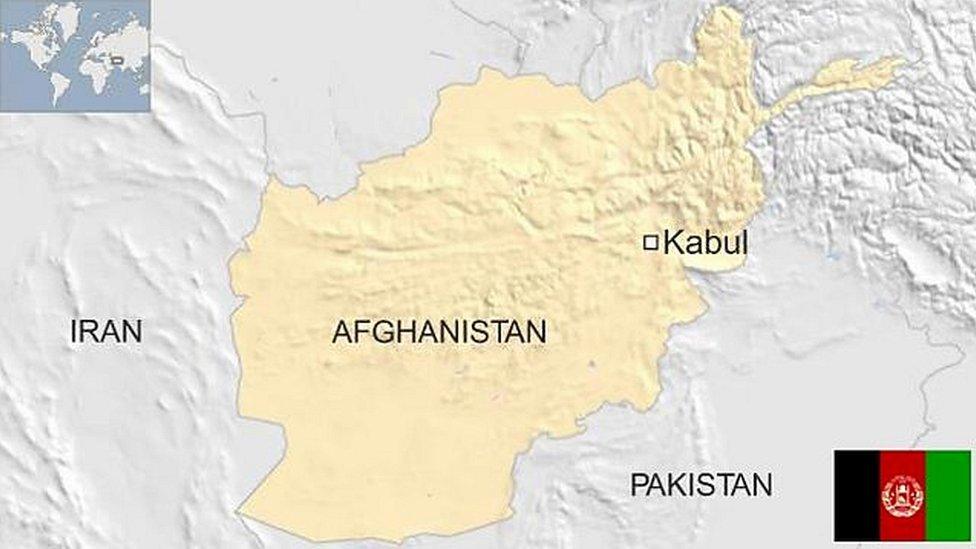Afghanistan: Bomb kills 63 at wedding in Kabul
- Published
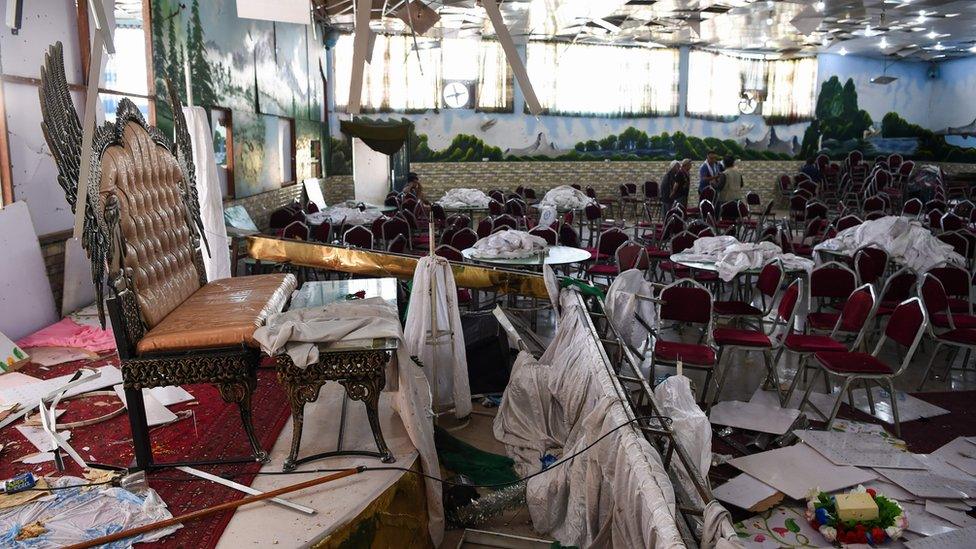
The Islamic State group has claimed responsibility for the attack
Burials are taking place in the Afghan capital, Kabul after a bomb exploded at a wedding hall killing 63 people and wounding more than 180.
The Islamic State (IS) group said it was behind the attack.
The blast happened on Saturday during a wedding ceremony at around 22:40 local time (18.10 GMT).
President Ashraf Ghani has condemned the attack, describing it as "barbaric". He blamed the Taliban for "providing a platform to terrorists."
The Taliban has denied involvement and condemned the attack.
What happened?
An IS statement said that one of its fighters blew himself up at a "large gathering" while others "detonated a parked explosives-laden vehicle" when emergency services arrived.
The Afghan interior ministry confirmed the death toll hours later. Pictures on social media showed bodies strewn across the wedding hall amid overturned chairs and tables.
Afghan weddings often include hundreds of guests who gather in large halls where the men are usually segregated from the women and children.
The groom who gave his name as Mirwais told local TV: "My family, my bride are in shock, they cannot even speak. My bride keeps fainting.
"I lost my brother, I lost my friends, I lost my relatives. I will never see happiness in my life again."
"I can't go to the funerals, I feel very weak ... I know that this won't be the last suffering for Afghans, the suffering will continue," he said.
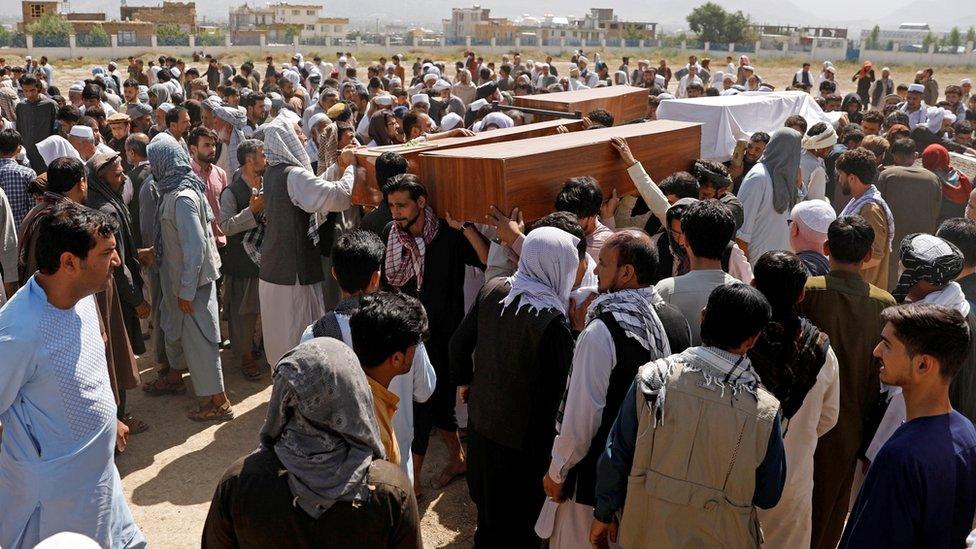
Burials are taking place in Kabul following the attack
The bride's father told local media that 14 members of his family were killed in the attack.
Wedding guest Mohammad Farhag said he had been in the women's section when he heard a huge explosion in the men's area.
"Everyone ran outside shouting and crying," he told AFP news agency.
"For about 20 minutes the hall was full of smoke. Almost everyone in the men's section is either dead or wounded."
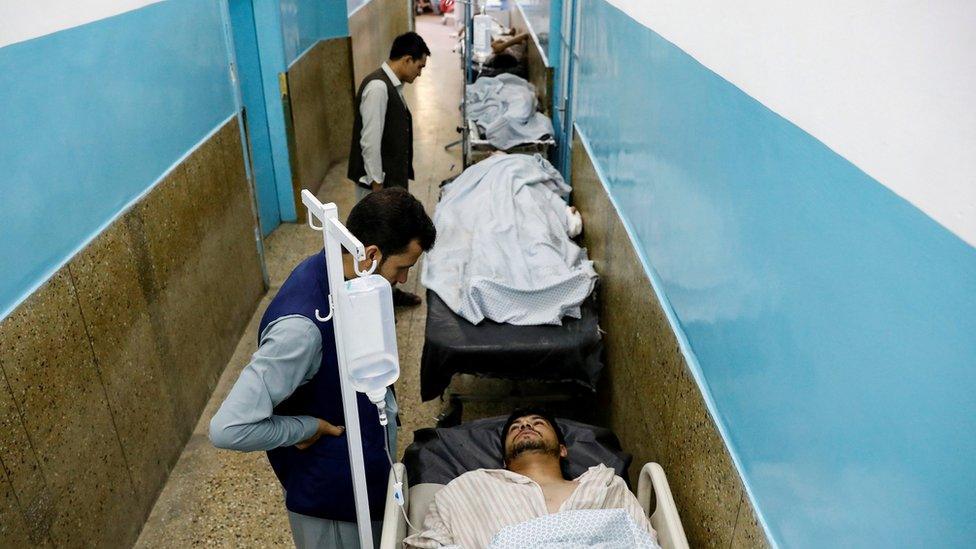
More than 180 people were injured in the bombing
A waiter at the hall, Sayed Agha Shah, said "everybody was running" after the blast.
"Several of our waiters were killed or wounded," he added.
The floor of the wedding hall was covered in blood after the explosion
Writing on Twitter, president Ashraf Ghani said he had called a security meeting to "review and prevent such security lapses."
Allow X content?
This article contains content provided by X. We ask for your permission before anything is loaded, as they may be using cookies and other technologies. You may want to read X’s cookie policy, external and privacy policy, external before accepting. To view this content choose ‘accept and continue’.

The explosion took place in the west of the city, mostly populated by Shia Muslims.
Sunni Muslim militants, including the Taliban and the Islamic State group, have repeatedly targeted Shia Hazara minorities in Afghanistan and Pakistan.
A Taliban spokesman said the group "strongly condemned" the attack.
"There is no justification for such deliberate and brutal killings and targeting of women and children," Zabiullah Mujaheed said in a text message to the media.
What's the background?
The latest blast comes just 10 days after a huge bomb outside a Kabul police station killed at least 14 people and injured nearly 150.
The Taliban said they carried out that attack.
On Friday a brother of Taliban leader Hibatullah Akhundzada was killed by a bomb planted in a mosque near the Pakistani city of Quetta.
No group has so far claimed that attack.
A source in Afghan intelligence told the BBC that Hibatullah Akhundzada had been due to attend prayers at the mosque and was probably the intended target.
Tensions in the country have been high even though the Taliban and the US, which has thousands of troops stationed in Afghanistan, are reportedly getting closer to announcing a peace deal.
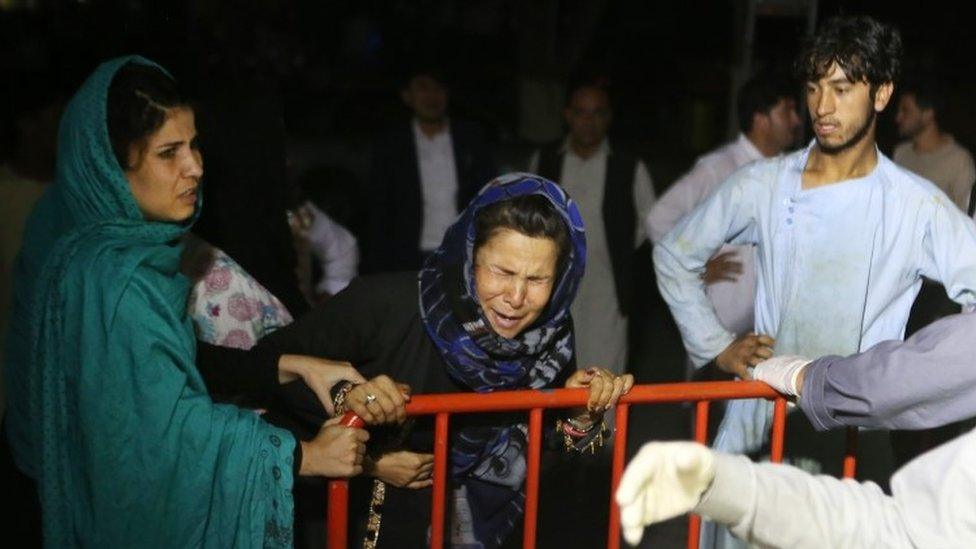
Worried relatives gathered outside a hospital in Kabul on Saturday
How are Afghan peace talks progressing?
Taliban and US representatives have been holding peace talks in Qatar's capital, Doha, and both sides have reported progress.
On Friday, US President Donald Trump tweeted that both sides were "looking to make a deal - if possible".
Allow X content?
This article contains content provided by X. We ask for your permission before anything is loaded, as they may be using cookies and other technologies. You may want to read X’s cookie policy, external and privacy policy, external before accepting. To view this content choose ‘accept and continue’.
The deal would include a phased US troop pullout in exchange for Taliban guarantees that Afghanistan will not be used by extremist groups to attack US targets.
The Taliban would also begin negotiations with an Afghan delegation on a framework for peace including an eventual ceasefire. The militants have been refusing to negotiate with the Afghan government until a timetable for the US withdrawal is agreed upon.
The Taliban now control more territory than at any point since they were forced from power in 2001.

- Published14 July 2019
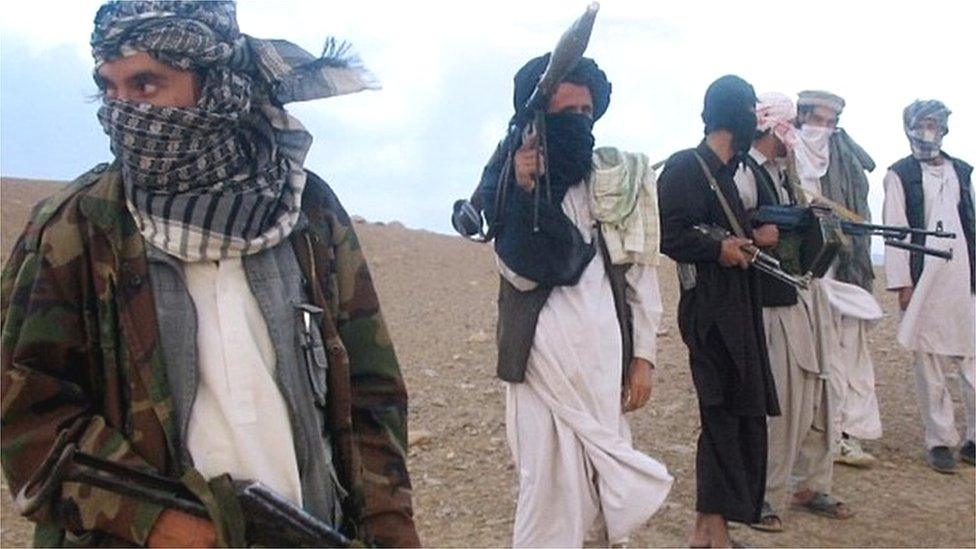
- Published7 August 2019
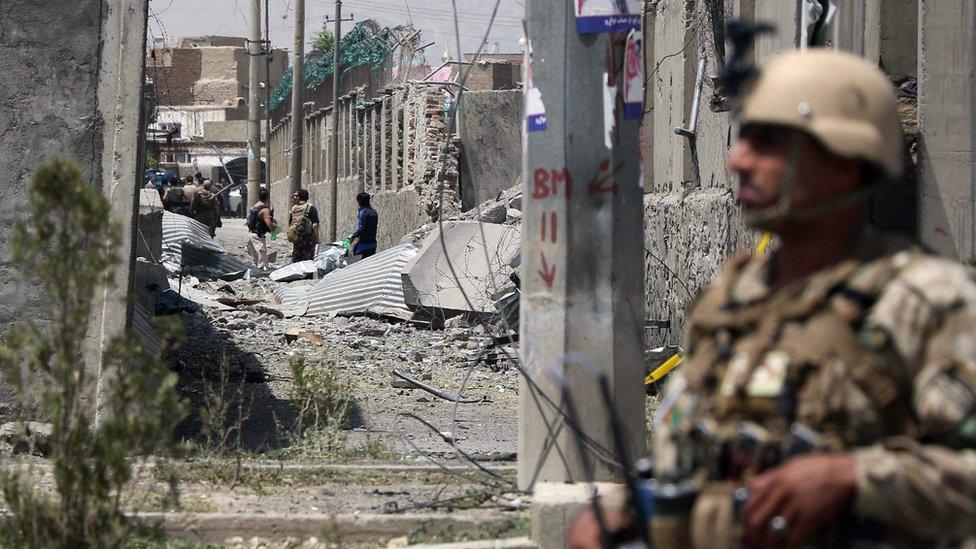
- Published10 March
